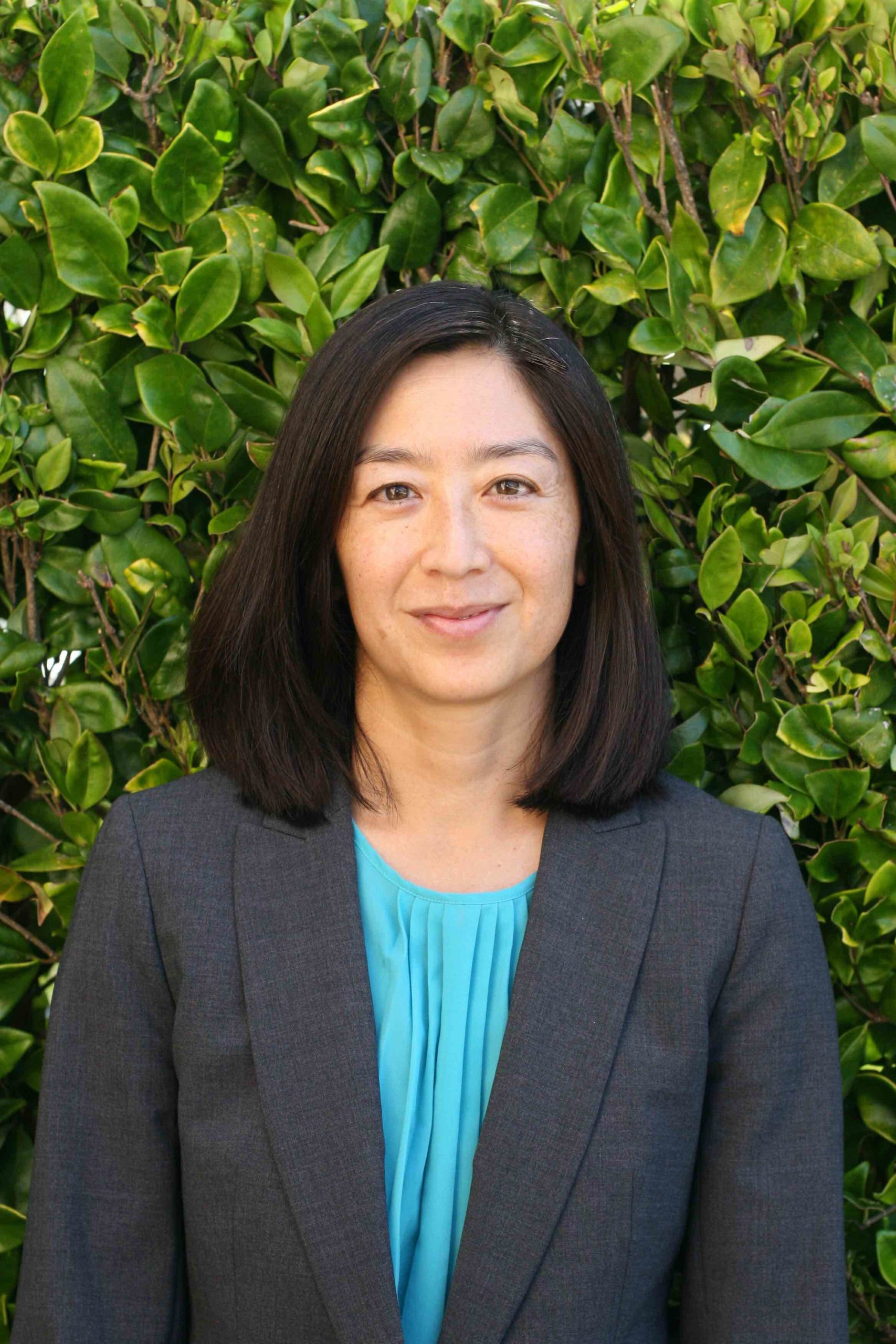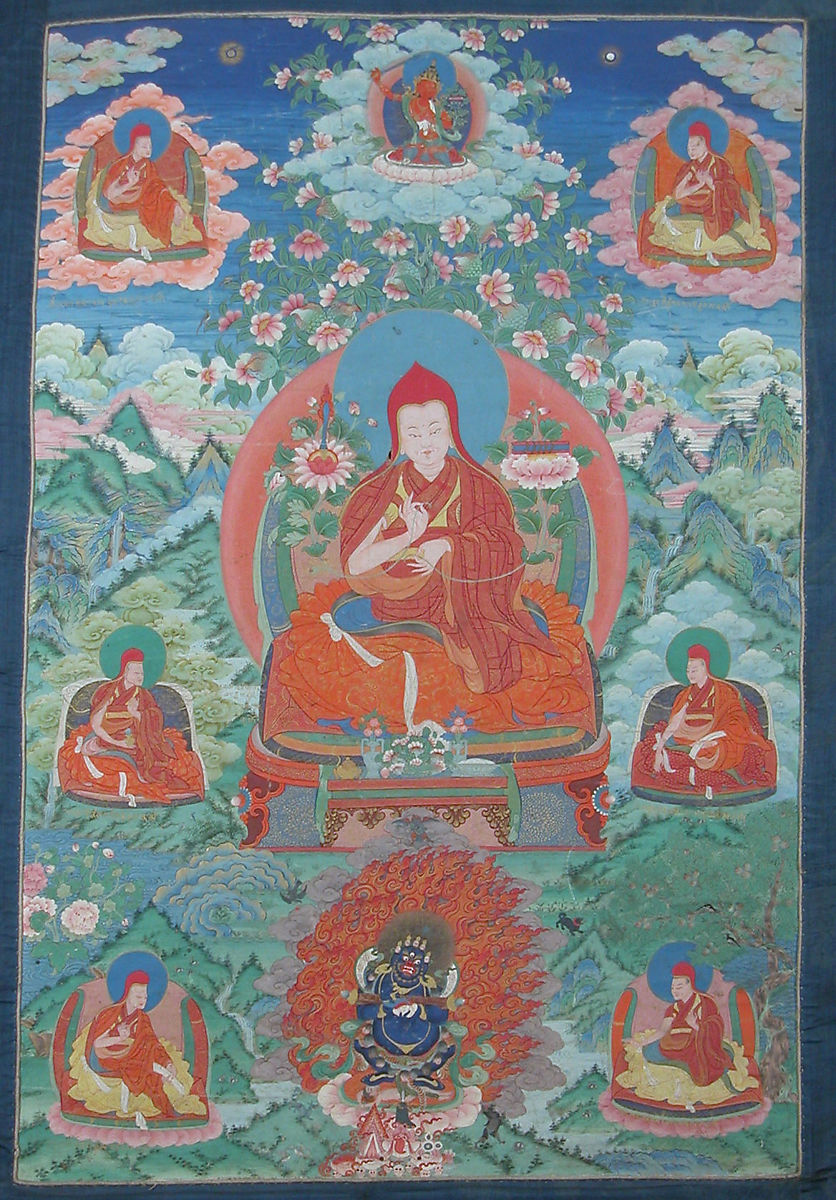Nancy Lin Joins the IBS Faculty
Gesshin Claire Greenwood | July 12, 2021
This fall, the Institute of Buddhist Studies is pleased to have Dr. Nancy Lin join us as full-time faculty member in support of the Buddhist chaplaincy program. Dr. Lin joins us after four years at Vanderbilt University, where she taught courses such as “Buddhist Traditions” and “Religions of Tibet and the Himalaya.”
Lin’s scholarship focuses on the literary and visual cultures of early modern Tibetan Buddhism, and she describes her work as being animated by an interest in human values and ethics. “The central question that guides my research and my teaching is ‘How do Buddhists live their values?’ In my research I do that historically… I’m interested in canonical tradition, and how people make sense of that and practice it in the world. It does flow very much through how I came to academic study, that is by knowing and meeting Buddhist practitioners.”
In her teaching and research, Lin is interested in how Buddhists negotiate the dynamic interplay between renunciation and engagement with the world. Her current book project is entitled Mannered Monks and Model Kings: Worldly Buddhists in Early Modern Tibet, and explores how Tibetan monks, artists, and rulers envisioned and sought to maintain spiritual practice while handling issues such as wealth, power, and institutional obligations. Reflecting on her academic interests, Lin explains that she is fascinated by “how you can be engaged in the world and maintain a sense of renunciation in your Buddhist practice.” She looks forward to grappling with these questions with students in her courses at IBS, and will be teaching “Buddhism and World Religions” in the fall.
In addition to a specialty in Tibetan Buddhism, Lin is passionate about the field of Buddhist chaplaincy. She believes chaplaincy is a “key part of the future of Buddhist studies and Buddhist practice… as a way of supporting people, providing care, and seeing how you can address people’s needs.” Since her scholarship has focused on how Buddhists live their values, she sees chaplaincy as a natural extension of this— a direct example of how Buddhists engage with an ethic of care. Looking at how people apply Buddhist principles to daily life is “really the beginning of where my interest in chaplaincy comes from,” she explains, and has been the focus of her academic career for many years. For Lin, Buddhist studies is deeply connected to the human experience, and she sees the academic study of Buddhism as a way of accessing that. “If you look broadly at the mission of humanities education in general… it’s to enrich our sense and our understanding of what it is to be human and how we got here,” she says. “Those are aspirations that many of us have as professors in the humanities.”

Amulet Box of a Noblewoman, late 19th–early 20th century Tibet, Gold, beryl, rubies, emeralds, sapphires, and turquoise; 4 x 4 in. (10.2 x 10.2 cm)
The Metropolitan Museum of Art, New York
Lin grew up in Oxnard, California. As a child, she enjoyed going to the beach and reading novels. Lin credits her early love of novels for inspiring an interest in the wider world and the complexities of the human experience. Reflecting on her childhood interest in literature, Lin sees a significant connection to her academic interest in Buddhism and religious studies today. Novels “make it possible for you to imaginatively enter other worlds and ways of being,” she explains. “They leave themselves open to different interpretations… also, they elicit enjoyment of language and the creativity and craft of writing. That enjoyment is wonderful in itself, but it can also draw our attention to how language works and the effects it can have on us. I’ve certainly brought these interests with me into my work in Tibetan religion and literature, but I also think that they are important for the study of religion and the humanities at large, as well as our ability to live and thrive in diverse societies.”
Lin also attributes her interest in cultural, religious, and linguistic diversity to her upbringing as a child of immigrants in a diverse American community. Lin’s parents grew up in Taiwan; they spoke the Taiwanese dialect at home and were educated in Mandarin and some English. She describes them as having moved to the U.S. to attend graduate school during the “brain drain” of the 1960s. Like many others of their generation they aspired to study in the United States, but had to learn “quite a lot of English” once they got here. Growing up in a Han Chinese family, she experienced a mix of Confucian, Daoist, and Buddhist influences. Although some extended family members were devout Buddhist practitioners, she sees Confucian influence most strongly in how her parents raised her. Her hometown in Southern California was a diverse multilingual, multiethnic, and mostly working class town during her childhood, which included immigrants from Latin America and the Philippines as well as a historic Japanese American community.
It wasn’t until her senior year of college that she took a deeper dive into the academic study of religion, when she took a course on Hinduism called “Hindu Myth, Image and Pilgrimage,” as well as a course on Sanskrit primary texts. This inspired her to visit India and Nepal when she graduated, where she visited various pilgrimage sites and began to meet members of the Tibetan exile community. “I felt more of a connection between my family background in Buddhism and these practicing Tibetan Buddhists,” she explains. “I was impressed by the forbearance and strength of the Tibetans that I met, in the face of the hardships that they’ve been through, and their sense of community and caring for each other.” After that, she decided to study the Tibetan language and Sanskrit, and attend graduate school. She went on to receive her master’s in East Asian Regional Studies from Columbia, with a specialization in Tibetan studies, and then a PhD from UC Berkeley.
Rev. Dr. Daijaku Kinst, who served on the search committee for this position, is enthusiastic about Lin’s connection to Buddhist chaplaincy, and her grounded, embodied understanding of Buddhist ethics and values. “One of the key things we were looking for in bringing someone into this position, is the ability to support students to build a substantive, well articulated dharmalogical/theological foundation for ministry,” Kinst explains. “Nancy brings a wealth of knowledge of Buddhism and is committed to supporting students to do that.” Dean Scott Mitchell is also enthusiastic about introducing Lin to the IBS community, and her ability to aid students in integrating academic and practical applications of Buddhism: “Dr. Lin’s impressive academic background will be an incredible asset to our programs and students. Her deep knowledge of Buddhist history and texts will help our chaplaincy and ministerial students to make their own connections between theory and practice. And with expertise in Tibetan and South Asian Buddhisms, IBS will be able to support a wider diversity of students.”

